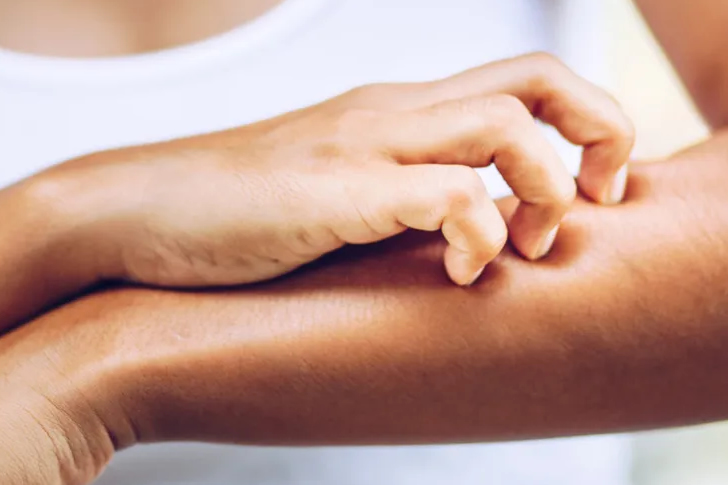Unraveling the Mystery of Itchy Skin: Symptoms, Causes, and Management
Itchy skin, or pruritus, affects many people at some point in their lives, leading to discomfort and potentially significant distress. This comprehensive guide explores the underlying causes of itchy skin, effective treatments, and practical home remedies to alleviate this common condition.

Causes of Itchy Skin
- Dry Skin: Often results from environmental factors such as low humidity and harsh soaps.
- Allergic Reactions: Caused by allergens like pollen, pet dander, or certain foods.
- Skin Conditions: Such as eczema, psoriasis, or hives.
- Systemic Diseases: Liver disease, kidney failure, and thyroid disorders can cause itching.
- Infections: Fungal infections like athlete’s foot or parasitic infections like scabies.
- Medications: Some medications can lead to allergic reactions or direct side effects causing itchy skin.
Management and Treatment
- Moisturizers: Regular use can help manage dryness and reduce itching.
- Topical Corticosteroids: Reduce inflammation and alleviate itching.
- Antihistamines: Help relieve itching caused by allergic reactions.
- Cool Baths and Wet Compresses: Provide immediate relief for itchy skin.
- Light Therapy: Used for more severe cases such as psoriasis.
Home Remedies and Prevention
- Oatmeal Baths: Known for their soothing effect on itchy skin.
- Coconut Oil: Natural oil that moisturizes and relieves dry skin.
- Aloe Vera: Reduces inflammation and itching.
- Avoid Irritants: Such as harsh soaps, tight clothing, and hot water.
- Humidifiers: Add moisture to the air, preventing skin dryness.
Signs and Symptoms of Itchy Skin
Here’s a table detailing ten signs and symptoms associated with itchy skin:
| Sign/Symptom | Description |
|---|---|
| Redness | Often accompanies itchiness due to irritation. |
| Bumps, Spots or Blisters | Common in conditions like chickenpox or allergies. |
| Dry, Cracked Skin | Especially in eczema or dry climates. |
| Flaky or Scaly Skin | Typical in psoriasis or fungal infections. |
| Rough Patches | May indicate chronic dermatitis. |
| Raised Welts | Seen in hives and allergic reactions. |
| Burning Sensation | Can occur alongside itching in infections. |
| Leathery or Hard Skin | Due to chronic scratching or inflammation. |
| Discoloration | Changes in skin color due to scratching. |
| Swelling | Associated with inflammation or hives. |
FAQs About Itchy Skin
Q: What is the most common cause of itchy skin? A: Dry skin is one of the most common causes, particularly in colder climates and in the elderly.
Q: When should I see a doctor for itchy skin? A: If itching persists for more than two weeks, is severe, or is accompanied by other symptoms like redness, swelling, or infection.
Q: Are there any specific tests for diagnosing the cause of itchy skin? A: Yes, depending on the suspected cause, tests may include blood tests, skin scrapings, or allergy tests.
References
For those seeking more information on itchy skin or related health conditions, these websites are valuable resources:
- Mayo Clinic: www.mayoclinic.org
- Provides comprehensive details on symptoms, causes, and treatment options for various skin conditions.
- American Academy of Dermatology: www.aad.org
- Offers in-depth information on skin health, including tips for managing itchy skin.
- National Eczema Association: nationaleczema.org
- A resource for understanding eczema, one of the common causes of itchy skin, with guidance on treatment and prevention.
These sources offer reliable, medically reviewed information that can help guide individuals suffering from itchy skin towards effective treatments and better skin health.







Recent Comments